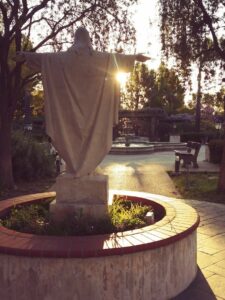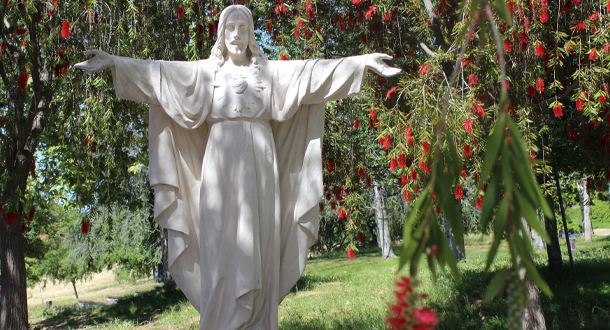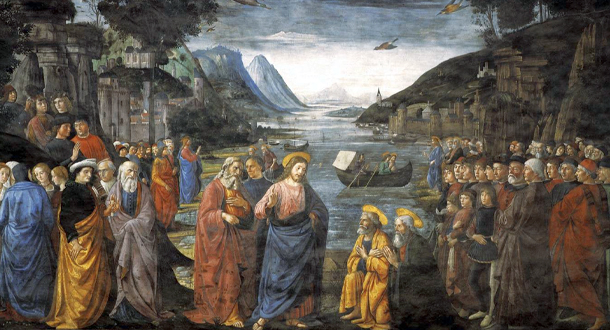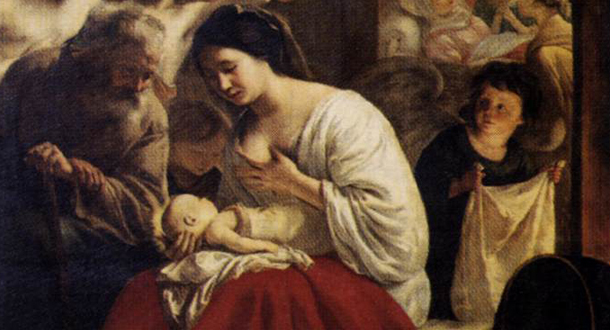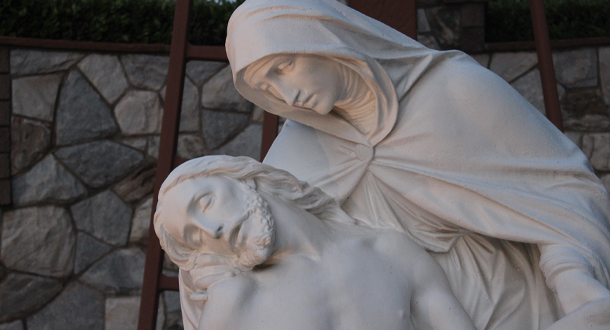
Memorial of Our Lady of Sorrows
Scripture:
1 Timothy 2:1-8
John 19:25-27 or
Luke 2:33-35
Reflection:
On one occasion I was invited to preach in the beautiful Rosary Chapel in Lourdes. A very large group of us were assembled together in pilgrimage, many who were very ill, whom we lovingly referred to as “maladies.” The others were family members, friends, and the patrons of the pilgrimage, the Knights and Dames of Malta.
It was the feast of the Blessed Mother, Mary Queen of Heaven and Earth. I naturally thought of her under her other title, as well, Queen of Angels and Saints. As I prepared this sermon for the Mass, I remembered prior visits to Lourdes with so many who were ill and suffering in so many different ways. I knew that if I were to preach about Mary as Queen, I would have to also remember when she became our Queen, so beautifully adorned with clothing, robes, a scepter in her hand, and a golden throne upon which she would sit and inspire.
I remembered all the beautiful images of our Blessed Mother, sitting upon her throne, a moment captured by many Italian and Dutch artists, and others as well. Radiant in her beauty, surrounded by angels and saints, too. But because I was so aware of all those who would be seated before me in the Rosary Basilica, so many of whom would be in wheelchairs and voitures, as they are called in French, I knew I could hardly invite them to a golden throne, so majestic and beyond earthly experience. Rather, as a Passionist, I realized that the Lord was asking me to bring all the assembled to a different place, to the first throne of Mary, the mother of Jesus. And where do we find this very “first throne” of Mary? At the foot of the Cross. We see Mary sitting in the dirt, adorned not with silk robes but rather wearing blood-stained garments and her tear-streaked face, all of which came from the unimaginably painful moment when she held in her arms, embraced in her lap, the broken, crucified body of her beloved Son, Jesus, our Crucified Lord.
This is the moment when Mary, simple maiden of Nazareth, became Queen of Heaven and Earth, Queen of Angels and Saints, seated in the mud and dirt of Calvary, at the foot of the Cross. This is when Mary became our Queen, our very own “blessed” mother. And, in this moment, as we approach the Cross of Christ, it is her calloused and stained hand that can reach out and hold our own. She knows our sorrows; she knows our pain. Not simply as a queen gloriously enthroned in Heaven, but as a beloved mother who embraces us, even as we seek to understand the meaning behind our own crosses and suffering so often encountered in daily life. Mary, our Sorrowful Mother, holds us, too, in her warm embrace as she leads us to Jesus, her crucified and beloved Son. It was on Calvary, sharing in the Passion of Christ, that Mary became our Queen, our Mother of Sorrows. And it is this special mother gifted us by God whom we honor on the special feast of Our Sorrowful Mother.
Fr. Pat Brennan, C.P. is the director of Saint Paul of the Cross Passionist Retreat and Conference Center, Detroit, Michigan.


